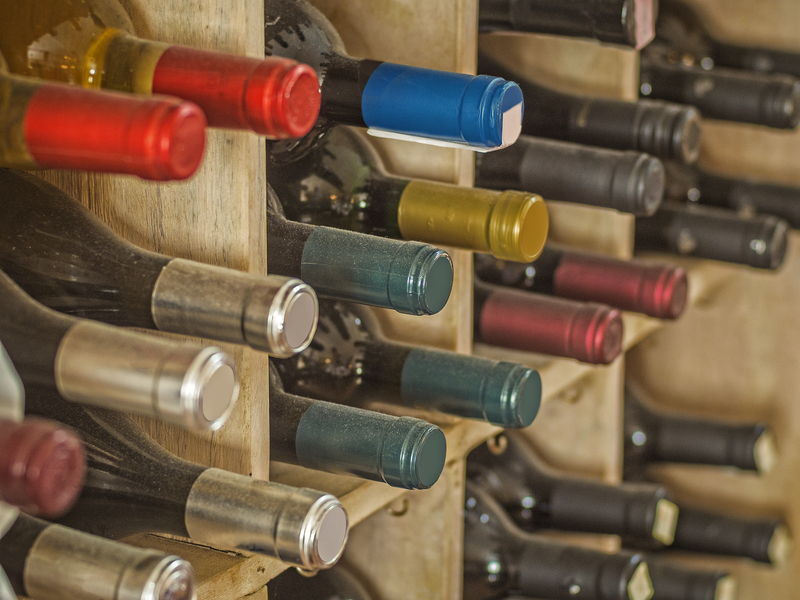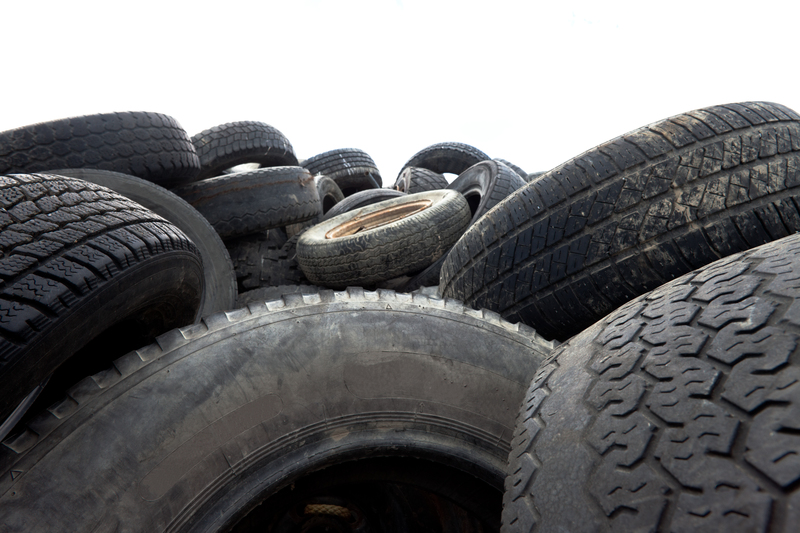Recycling Tips for a Simple Home Life
Posted on 27/11/2024
Recycling is an essential component of environmentally responsible living. However, many people find it challenging to sift through recycling rules and regulations, which can vary from place to place. Simplifying recycling can make it easier and more efficient for everyone involved. In this comprehensive guide, we'll provide tips and strategies to streamline the recycling process at home.
Understanding What Can and Cannot be Recycled
The first step to effective recycling is understanding what materials are recyclable in your area. Most communities accept common recyclables such as paper, cardboard, glass, certain plastics, and metals. Contact your local waste management facility for specifics, as these can vary widely.
Here's a basic rundown of what generally can and cannot be recycled:
- Paper: Newspapers, magazines, office paper, and cardboard are widely accepted. Avoid recycling paper products contaminated with food, like greasy pizza boxes.
- Glass: Bottles and jars are typically recyclable, but some centers do not accept broken glass for safety reasons.
- Plastic: Generally, plastics labeled #1 and #2 are recyclable. Check the bottom of the container for the recycling symbol and number.
- Metals: Aluminum and steel cans are usually recyclable. Make sure to rinse them out to remove any food residue.
Items that are usually non-recyclable include:
- Plastic bags: Many grocery stores offer their own recycling programs for plastic bags.
- Styrofoam: This is generally not accepted in curbside recycling programs.
- Ceramics and Pyrex: These materials have different melting points compared to recyclable glass.

Setting Up a Home Recycling System
One of the most effective ways to simplify recycling at home is by setting up a well-organized system. Here are some tips to get you started:
- Designated Bins: Use separate bins for different types of recyclables. Label them clearly to avoid confusion. This helps everyone in the household sort their waste correctly.
- Location: Place recycling bins in convenient locations. If you're more likely to use recycling bins in the kitchen or next to your desk, put them there.
- Clean and Rinse: Rinsed containers are less likely to attract pests. A quick rinse can go a long way in keeping your recycling area clean and manageable.
Creative Ways to Recycle and Reuse
Beyond the regular bin system, finding creative ways to reuse items can reduce the amount of waste going into both the recycling and trash bins. Here are some ideas:
- Tin Can Planters: Tin cans can be repurposed as small planters for herbs or flowers. Just make sure to punch a couple of holes in the bottom for drainage.
- Glass Jar Storage: Glass jars can serve as storage containers for pantry items, craft supplies, or leftovers.
- Reusing Paper: Use both sides of paper before recycling. You can also turn paper into notepads or scrap paper for lists and reminders.
Composting
While not traditionally seen as recycling, composting is another way to reduce the amount of waste sent to landfills. Composting transforms organic waste into nutrient-rich soil that can fuel your garden. Items that can be composted include fruit and vegetable scraps, coffee grounds, eggshells, and yard waste like grass clippings and leaves.
Setting up a compost bin is simple:
- Choose a container: You can use a commercial compost bin or create your own from an old garbage can.
- Balance your materials: Compost needs a balance of "greens" (nitrogen-rich materials such as vegetable scraps) and "browns" (carbon-rich materials such as dried leaves and cardboard).
- Turn the compost: Regularly turning the compost helps speed up the decomposition process and reduces odor.
Electronic Recycling
Electronic waste (e-waste) is one of the fastest-growing waste streams and includes items like old smartphones, laptops, and household batteries. These items often contain hazardous materials that can harm the environment if not disposed of correctly.
Here are steps to recycle electronics responsibly:
- Use designated e-waste recycling centers: Many communities have drop-off points specifically for e-waste.
- Manufacturer take-back programs: Some manufacturers offer recycling programs where they take back old products. Check the brand's website for more information.
- Data wipe: Before recycling, make sure to erase all personal data from devices.
Reducing Recycling Contamination
Contaminated recycling lowers the quality of the materials and can cause whole batches to be sent to the landfill. Here are steps to minimize contamination:
- Proper Cleaning: Make sure recyclables are cleaned or rinsed. Small amounts of contamination, like leftover food, can ruin an entire batch.
- Avoid "Wishcycling": Don't place items in the recycling bin hoping they can be recycled. If in doubt, research or discard it.
- Separate Items: Materials like plastic attached to metal or food residues should be separated before recycling.

Involving the Whole Family
Encouraging everyone in your household to participate in recycling can make the process smoother and more effective. Here are some tips for getting your family involved:
- Educate: Make sure everyone understands what can and cannot be recycled in your area.
- Make it Fun: Turn recycling into a game or challenge. See who can come up with the most creative ways to repurpose items.
- Assign Roles: Give each family member specific responsibilities related to recycling, like rinsing cans or taking out the recycling bin on collection day.
Conclusion
Recycling doesn't have to be complicated. By understanding local recycling rules, setting up an effective sorting system, finding creative reuses for items, composting, and properly handling electronic waste, you can make a significant positive impact on the environment without much additional effort. Reducing contamination and involving the whole family can further streamline the process, making recycling a natural and straightforward part of your household routine.
As the saying goes, "Reduce, Reuse, Recycle." Every small effort counts and contributes to a healthier planet for future generations.
Latest Posts
Eco-Friendly Home Organization
Dispose with Care: Responsible Strategies for Removing Waste
Sustainable Solutions for Commercial Waste
Sustainable Solutions: A Closer Look at London's Waste Reduction Efforts

 020 3744 5712
020 3744 5712










